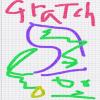I'm not sure how many are aware of Absinthe. It was a popular drink for sometime, indulged by the likes of Van Gogh, Oscar Wilde, Crowley, and various others. Having recently partaken in it (only one serving), i have found a rather interesting effect that was not like the archetypal alcohol for me. Granted placebo effects, it was as though the perception of the world altered quite a bit and began to contain a hidden spark not often noticed. There was also a level of creativity, quite similar to that experienced under Piracetam but more of a sedation, with thoughts and verbal creativity enhanced a bit after about 20 minutes of consumption. It is obvious, however, that overindulgence will give quite the opposite effect, but it seems a once in awhile serving might give benefits.
Given both the nature and history of the drink, one must wonder if it presents any additional boosts in area of cognition dealing primarily with creativity, or if merely the alcohol. Current maximum legal amount of thujone (active ingredient in wormwood) is about 10 mg/L, at this level it is brought back to America and sold legally. Anyways, I have found a study on it for those interested about its history and effects in more detail:
http://www.substance...content/1/1/14/
Modern studies about pharmacology and toxicology of thujone and the conclusion are perhaps the most informative parts of the article.
What do you guys think?


















































